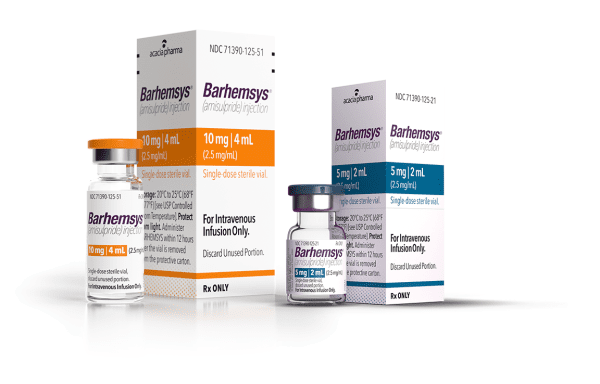Amisulpride Disease Interactions
There are 2 disease interactions with amisulpride.
Amisulpride (applies to amisulpride) QT interval prolongation
Moderate Potential Hazard, Moderate plausibility. Applicable conditions: Arrhythmias, Congestive Heart Failure, Hypokalemia, Magnesium Imbalance
Amisulpride causes dose and concentration-dependent prolongation of the QT interval and should be avoided in patients with congenital long QT syndrome and in patients taking some drugs that prolong the QT interval such as droperidol. ECG monitoring is recommended in patients with pre-existing arrhythmias and cardiac conduction disorders; electrolyte abnormalities (e.g., hypokalemia or hypomagnesemia); congestive heart failure; and in patients taking other medicinal products or with other medical conditions known to prolong the QT interval.
Amisulpride (applies to amisulpride) renal dysfunction
Moderate Potential Hazard, Moderate plausibility.
The pharmacokinetics of amisulpride in patients with severe renal impairment have not been adequately studied, however, the drug is known to be substantially excreted by the kidneys and patients with severe renal impairment may have an increased risk of adverse reactions. Avoid the use in patients with severe renal impairment (eGFR less than 30 mL/min/1.73 m2). No dosage adjustment is necessary in patients with mild to moderate renal impairment (eGFR 30 mL/min/1.73 m2 and above).
Switch to professional interaction data
Amisulpride drug interactions
There are 396 drug interactions with amisulpride.
More about amisulpride
- amisulpride consumer information
- Check interactions
- Compare alternatives
- Reviews (16)
- Side effects
- Dosage information
- During pregnancy
- Drug class: atypical antipsychotics
- Breastfeeding
- En español
Related treatment guides
Drug Interaction Classification
| Highly clinically significant. Avoid combinations; the risk of the interaction outweighs the benefit. | |
| Moderately clinically significant. Usually avoid combinations; use it only under special circumstances. | |
| Minimally clinically significant. Minimize risk; assess risk and consider an alternative drug, take steps to circumvent the interaction risk and/or institute a monitoring plan. | |
| No interaction information available. |
See also:
Further information
Always consult your healthcare provider to ensure the information displayed on this page applies to your personal circumstances.


